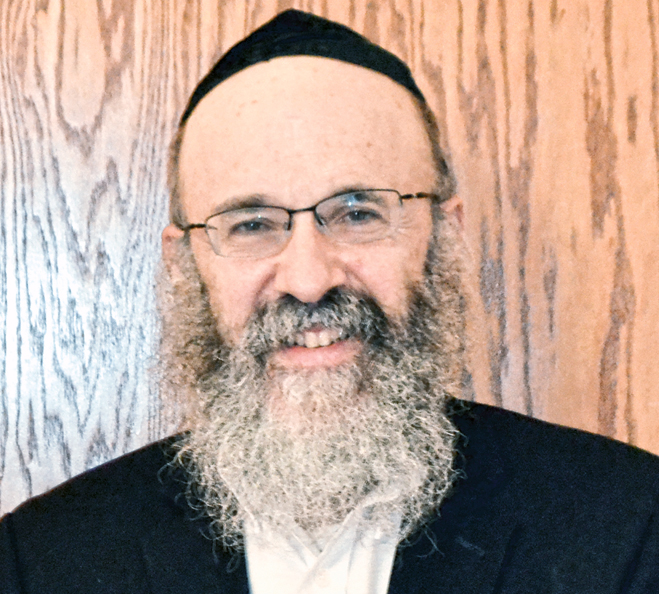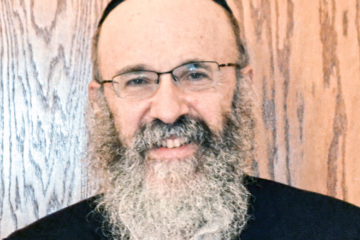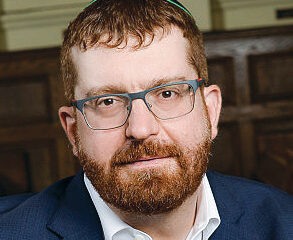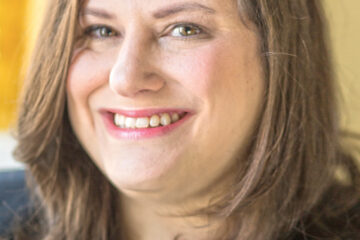The small act that brings completion

By Rabbi Shmuel Klatzkin
Chabad of Greater Dayton
There is a striking verse in the Lecha Dodi, sung as we welcome Shabbat each Friday night. It sings of Shabbat as that which was: “From the very beginning, from time primordial, chosen: Last in creation, first in thought.”
Simply, Shabbat was the last of the seven days of creation, yet it is elevated above them all, indicating it has been from the start the goal to which all days lead.
There are many other views of time. Modern thought has contemplated a universe that progressively wears out, compelled by the second law of thermodynamics to an eventual entropic grey-out.
Ancient thought, by contrast, in Greece, India, and many other places, looked at time as an endless cycle, tending toward nothing in particular.
But the way of seeing time that inspires the poetry of Lecha Dodi is among what Thomas Cahill called the gifts of the Jews. In Cahill’s words:
“Time isn’t a circle; it’s linear, with a narrative that has a beginning, middle, and a triumphant end toward which mankind is destined. And every generation — every person — is contributing to writing and shaping the story, with the purpose of making the world an increasingly better place. We can progress and move forward, and everything we do matters.”
The words of Lecha Dodi say this poetically — the first week of creation moves toward its climax, the seventh day, in which all is brought to fullness and completion before God. The Hebrew word used to express this coming-to-fullness on Shabbat is vayechulu, derived from the same Hebrew root as the word kilayon, which is used by the mystics to describe the soul’s ecstasy in its embrace with God.
This was the goal of the first week, as described in Genesis, and the pattern of the first week repeats itself throughout time.
But these repetitions are not merely start-overs, à la Groundhog Day. For just as the goal of the first week was the Shabbat, so too did the rabbis of old speak of yom shekulo Shabbat—the day which will be entirely Shabbat and tranquility for the life of eternity.
In other words, each cycle marks the completion of another step in the journey to a wholeness which is more complete and more filled with delight than the one before.
As well, there is a progression within Shabbat itself. The brilliant and original Jewish German thinker Franz Rosenzweig pointed out that on Friday night, Shabbat focuses on creation as we read the climax of the creation story in Kiddush and the night prayer.
Saturday morning, we move forward more deeply into our relation with God, as now we focus on Shabbat as it is in the Torah given to us, and the Torah reading is at the center of our services and of the morning prayer.
This is revelation: God is no longer just the Creator behind the world, but the One who in love reveals His own self to us directly at Sinai.
Finally, in the afternoon prayer, we embrace redemption. We, the Jewish people, reflecting God’s own oneness, bring the divine redeeming message of Shabbat into the world through exemplifying the love of God in all we do.
It is at this peak that Shabbat ends. But with Havdalah and a set table Saturday night, with music and joy, we start the new week at that high point at which Shabbat ended, ready for another week that will go even higher.
So instead of a static circle, there is a spiraling upward, returning to the start but at a higher level.
This is the principle that determines the law of the Chanukah lights – that we begin with one light and add on each night, ma’alin bakodesh, always ascending in matters of holiness.
Not that there is no erosion. The rabbis said that if the earlier generations were angels, then we are merely human; if they were just human, then we are donkeys.
But this was taught to help us avoid the chutzpah of taking for granted what our ancestors only achieved with great effort.
Without their example and achievement, we have no reason to believe we would be able to duplicate their work, let alone exceed it.
We need not shy away from looking at ourselves as the very last and lowest, because that is precisely where the blessing is meant to be found. It is the last day of creation, the lowest of levels, that was first in God’s thought.
Humility is not timidity. Where timidity paralyzes, humility empowers. It is only when we can see ourselves humbly, the recipient of many gifts that we did not work for, that we can realize who we really are.
And the little choices that we make, the little story that we can write ourselves, is what the world was waiting for: the blessing that has waited from the very beginning of all things for us.
All the great people, all the great leaders, mystics, whether prophets, sages, tzadikim, or people of simple goodness, all are looking to us to do what we alone can do.
A mitzvah (commandment) is calling us – and the Day That is Entirely Shabbat is coming on its wings.
But, as El Al used to advertise, why wait till you arrive at Ben Gurion to begin your Israel experience?
Whether lighting the lights at home or making Kiddush, or whether joining the community at prayer and fellowship at shul, we can taste the peace and joy that awaits every week and anticipate it each day.
To read the complete January 2025 Dayton Jewish Observer, click here.





